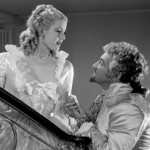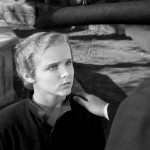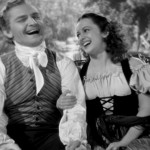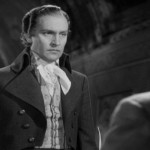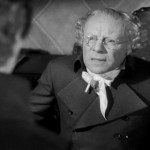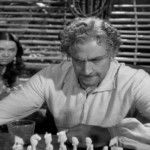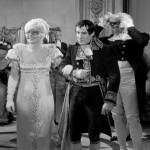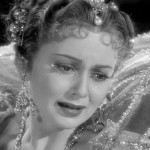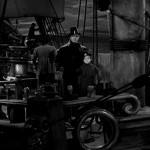
Anthony Adverse – 1936
Anthony Adverse was a film that was based on a novel of the same name, written by Hervey Allen. But I had to look it up. I would have sworn that it was written by Charles Dickens. It’s plot has all the earmarks of a Dickens novel. It has the poor young orphan boy whose life begins with misfortune. He ends up with a kindly benefactor who raises him to be an outstanding, hard-working young man.
He falls hopelessly in love with a girl who, for one reason or another, he cannot be with. As he matures, he acquires both friends and enemies. Eventually, after years of hard work, he gains a small amount of wealth and status. And just when it seems that he will get his girl, something happens to keep the lovers apart forever. The plot sounds so similar to that of David Copperfield, Oliver Twist, and Great Expectations.
The movie starred Fredric March and Olivia de Havilland. March, of course, plays the lead, Anthony Adverse, so named because of all the adversity he began his life with. The young girl he falls in love with is Angela Giuseppe, the daughter of household servants. The master of the house, Anthony’s benefactor, who turns out to actually be his grandfather, is John Bonnyfeather, played by Edmund Gwenn. Unfortunately, to protect the lad from the evil Marquis Don Luis, the boy’s real father, played by Claude Rains, Bonnyfeather cannot claim the lad as his true kin.
When I think about it, it sounds a bit like a soap opera. But there were a couple of aspects to the film that I think set it above the common film. First of all, there was some good acting. March and de Havilland were both good, but I have come to expect nothing less from them. They were able to play the drama as well as the romance and it was all very engaging. De Havilland, especially in her final scene, was good, real tears on her cheeks as she watches Anthony leave her forever, knowing that it is her own fault.
But it is also difficult to find any fault with Claude Rains. He is always a pleasure to watch. I usually see him in good-guy roles, but here, he played the villain just as brilliantly. I liked how he showed a sort of tenderness to his young bride, but complete disregard for his servants. Then, when he found out that she was in love with another man, he carelessly killed him while she watched.
The period sets and costumes were spot on, and the loud and melodramatic music was appropriate for the romance genre. I liked the epic nature of the tale being told. And I also liked the ending, which was a little unexpected, but again, appropriate. Apparently, after Anthony returns from 5 dark years in Africa, not knowing if Angela was alive or dead, he comes home to find his wife in Paris. She has become three things: a famous opera star, the mother of Anthony’s son, and the mistress of Napoleon Bonaparte, played by Rollo Lloyd. Kind of hard for her to get out of that one. So, she leaves Anthony a letter and her son, saying that she is not in a position to be a good mother. “Surprise! He’s your kid now. Have fun in America. Bye!” I didn’t see that coming.
But the movie was by no means perfect. For something as linear as a biographical format, the film was a little too episodic. It had chapters that were clearly defined by breaks in the story. Text would be displayed on the screen to transition from one sequence to another, plot exposition that the filmmakers didn’t want to film. I understand that it made the passage of time easier, but there are other ways to do that, some of which were used quite competently in the film.
Also, the entire opening sequence, which told the story of Anthony’s parents and their forbidden love under the shadow of the Marquis, felt strangely rushed. It was as if there was a lot of back-story to tell and they wanted to get through it as quickly as possible. Scenes were clipped quickly, as soon as the dialogue was done, and the next scene would begin abruptly.
A small documentary feature about the making of the film, which was a rarity for a film made in 1936, revealed that the original book was over 1,100 pages long. But it also claimed that the movie was better than the book. That was a pretty bold claim, but I’m guessing it wasn’t really true.
